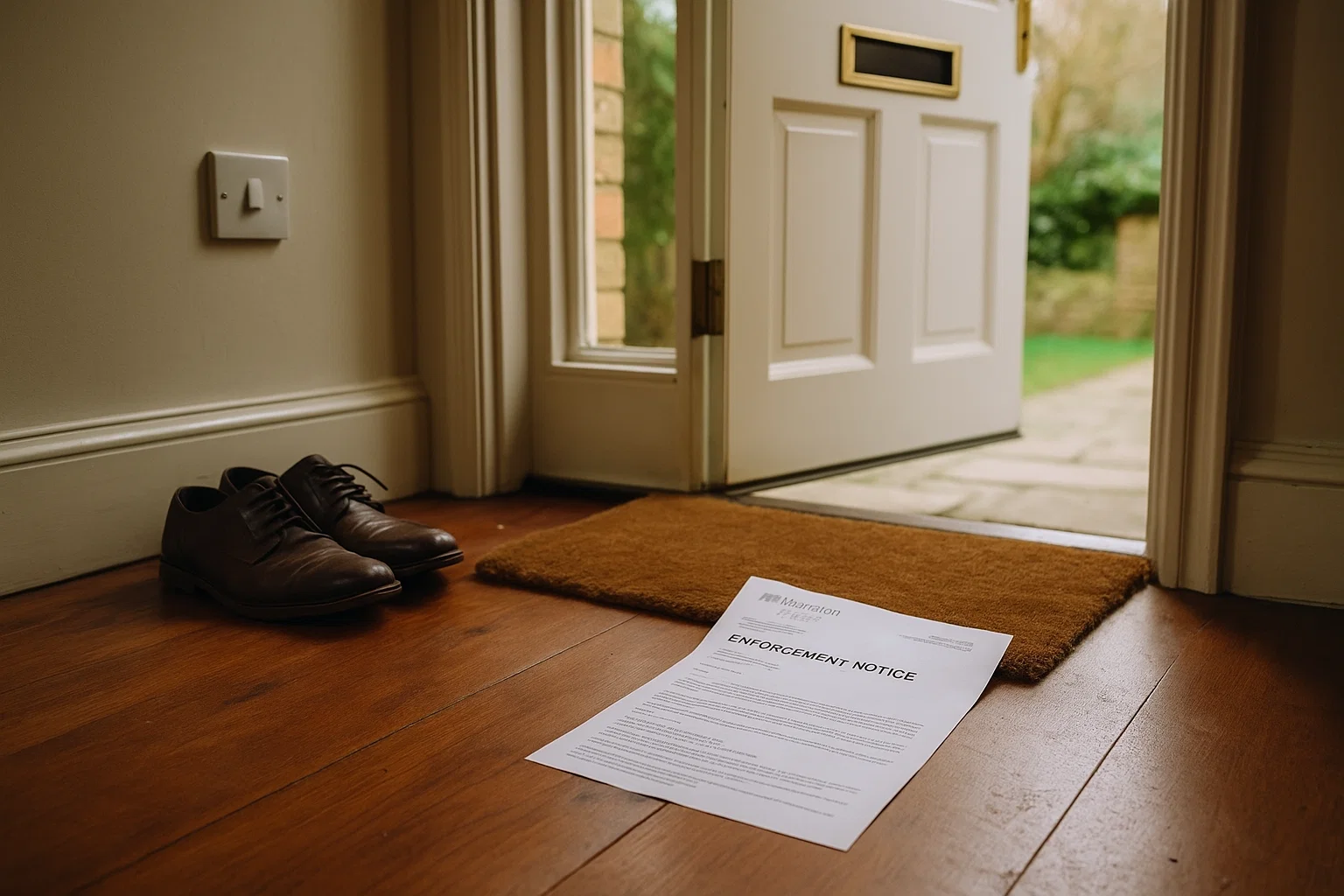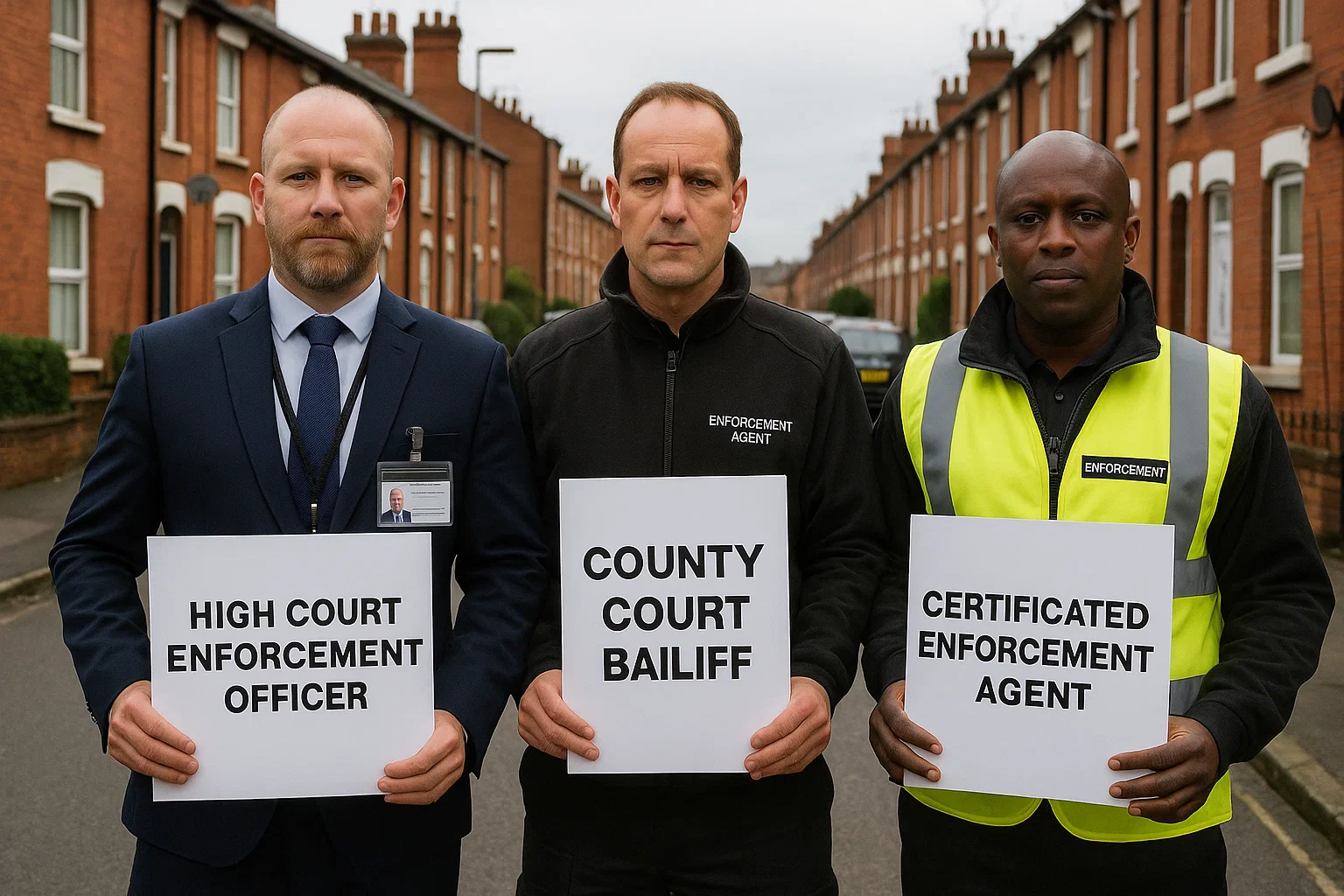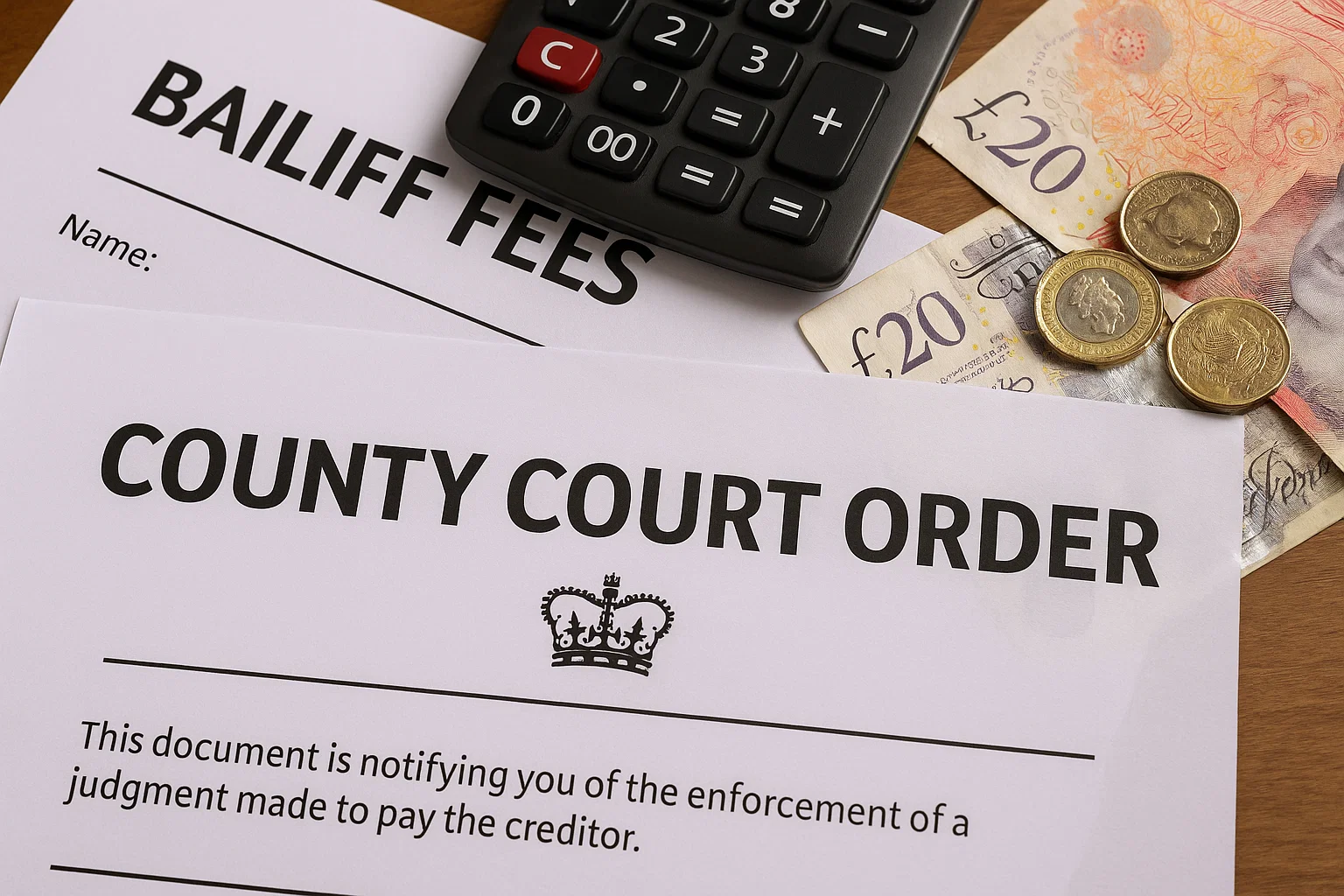If you’ve recently had contact from Marston Holdings bailiffs, you’re not the only one. They are the largest enforcement company in the UK, working for councils, the courts and private organisations when people owe money on things like fines, council tax, or other unpaid debts. Letters, texts, or bailiff visits from Marston Holdings can feel frightening, but you do have rights and options. This guide explains who they are, the different types of bailiffs, what enforcement agents can and cannot do, the fees they charge and how you can stop the process with the right debt support.

Who Are Marston Holdings and Why Have They Contacted Me?
Marston Holdings, more commonly known as Marston, are not just another debt collection agency. They are a network of certificated enforcement agents authorised by the courts to carry out enforcement on debts such as council tax arrears, traffic penalties and court fines. Unlike ordinary collection companies, their powers are backed by law, which is why so many people feel under pressure once they are involved.
They work on behalf of government bodies, local councils, the court and even private companies that are owed money. Their scale means they deal with millions of cases each year, but being big does not mean they always get things right. In fact, they have been forced to issue refunds for unfair charges in the past, which shows how important it is to know your rights and question any fees that do not look correct.
Bailiffs or Enforcement Agents: What’s the Difference?
The word “bailiff” is still widely used, but the official title today is enforcement agent. In simple terms, a bailiff or enforcement agent has more legal powers than a standard debt collection agency. Debt collectors can only ask for payment and try to arrange a repayment plan. They are not allowed to enter your home or remove goods.
By contrast, enforcement agents such as those working for Marston have the authority to visit your home and, if necessary, take control of goods to repay what is owed. Even so, their powers are not unlimited, and strict rules govern what they can and cannot do.

The Different Types of Bailiffs in the UK
There are several types of bailiffs and knowing which one is contacting you can help you understand their powers. A county court bailiff is employed by the county court to enforce court orders such as county court judgments. A high court enforcement officer operates under the authority of the High Court and usually deals with larger debts. In family law matters, a family court bailiff may be involved, while a civilian enforcement officer is responsible for certain fines and penalties.
Marston employ certificated enforcement agents, which means their staff are authorised by the courts to carry out enforcement. Each of these roles comes with specific limits, none of them give blanket permission to do whatever they want.
What Enforcement Agents Can and Cannot Do
When a Marston agent visits, it is easy to feel like you have no control. In reality, a certificated enforcement agent is bound by rules. They are allowed to ask for payment, set up a repayment plan, or enter into a controlled goods agreement, which is a formal arrangement where your possessions are listed but not removed as long as you keep up with the agreed payments. They can also remove certain non-essential items if no agreement is reached.
However, there are important restrictions. They cannot break into your home on their first visit and they are not allowed to remove essentials such as clothing, basic household furniture, or tools you need for work. They must also behave professionally and cannot harass you. If they do, you have the right to complain and organisations such as Citizens Advice can guide you on how to do this.

Bailiff Fees and Court Involvement
Every stage of bailiff enforcement comes with additional costs. Once a notice of enforcement is issued, a fee is applied. If payment is not made and bailiff visits take place, a much higher fee is added. If goods are removed, more charges follow, especially if the case goes to a sale stage.
Much of this work is linked to the county court. For example, unpaid council tax and parking penalties often end up with a county court bailiff or a certificated agent acting under their authority. If a case escalates to the High Court, a high court enforcement officer may be involved. In more serious matters, such as unpaid criminal fines, an agent may be given extra powers. Each of these steps adds cost, which is why dealing with the debt early is always the best option.
Can Marston Bailiffs Take My Car or Force Entry?
The question many people ask is whether Marston can take their car. If the vehicle is not on finance and is parked outside your property, an enforcement agent can clamp or remove it. Cars are often targeted because they are valuable and relatively easy to sell. This is why agreeing a payment plan before it gets to this stage can protect you from losing essential assets.
As for entering your home, bailiffs cannot usually force their way in. They can only enter through normal means such as an unlocked door. The exceptions are limited and include unpaid criminal fines or certain tax debts where the courts have granted extra authority. For ordinary cases like council tax or parking penalties, they cannot break in. Knowing this rule alone can reduce a great deal of anxiety when facing an unexpected knock on the door.

Stopping Bailiff Action Before It Gets Worse
If you ignore Marston, the problem will not disappear. Fees will rise, bailiff visits will continue and the risk of losing goods increases. Acting quickly is the most effective way to stop the cycle. Some people choose to speak directly to Marston to try and set up a repayment plan. Others prefer professional debt help, where solutions such as an Individual Voluntary Arrangement can bring enforcement to a halt.
While a Controlled Goods Agreement is one way of dealing with enforcement action, a formal debt solution can go further by consolidating your debts into a single affordable monthly payment. Seeking advice from services like Citizens Advice can help, but working with a dedicated team such as My Debt Plan can offer a more structured and tailored route towards stopping bailiff action altogether.
Why My Debt Plan Is the Safer Option
Dealing with Marston or any other enforcement agents alone is stressful. At My Debt Plan, we help people across the UK who are struggling with enforcement action. If you have a county court judgment, unpaid council tax, or any other debt that has reached bailiff stage, we can step in before matters escalate further.
By setting up a structured repayment plan through an IVA or other solution, you protect yourself from further visits, you freeze additional fees and you take back control of your finances. Instead of fearing another knock on the door, you can focus on managing your money in a way that is affordable and realistic.

Taking the Next Step
If you have received a letter, call, or visit from Marston Holdings, don’t wait for things to get worse. The sooner you take advice, the sooner you can put an end to the stress. My Debt Plan has helped thousands of people stop bailiff action and move towards a stable financial future.
For free and confidential advice, speak to our team today. Together we can find the best way to deal with enforcement, protect your home and possessions and give you the breathing space you need.






